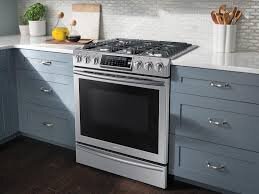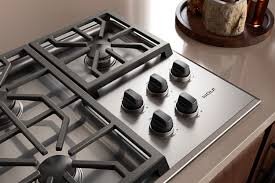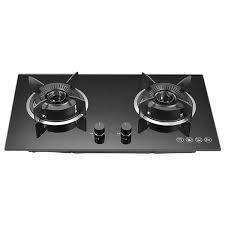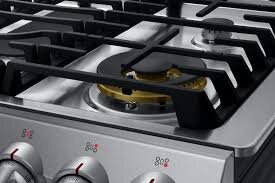In the ever-evolving world of kitchen appliances, the quest for the right gas stove is anything but straightforward. As technology advances and consumer preferences shift, the decision-making process becomes increasingly complex. Imagine stepping into a kitchen store, faced with a dazzling array of options, each promising superior performance and unparalleled efficiency.
How do you navigate through the maze of features, brands, and specifications to find the stove that best suits your culinary needs? With new innovations emerging in 2024, the stakes are higher than ever. Prepare to unravel the secrets behind choosing the right gas stove as we delve into the latest information and expert insights. Your perfect kitchen companion is closer than you think—if you know where to look.
Table of Contents
Why Choose a Gas Stove?
Gas stoves are a popular choice due to their numerous advantages. They heat up quickly, allowing for faster cooking and immediate temperature adjustments. Natural gas is typically cheaper than electricity,
Quick Heating and Precise Control
Discuss the benefits of fast heating and instant temperature adjustments, which suit various cooking styles. Contrast with electric stoves to highlight cost-effectiveness.
Ease of Installation
Explain how gas stoves typically require less specific installation and venting, making them a convenient option for many homes.
How to Choose the Right Gas Stove?
Types of Gas Stoves
- Freestanding Ranges
Describe versatility, easy installation, and ideal integration for multi-purpose use. - Slide-in Ranges
Explain how the flush design offers a modern look, with controls that are easier to access.

- Cooktops
Discuss the flexibility of countertop installation, additional counter space, and custom setup potential.

- Built-in Stoves
Focus on how built-in stoves save space and offer a seamless, high-end look for modern kitchens.

2.Number of Burners
Single vs. Multiple Burners
Guide readers based on cooking habits, suggesting single burners for light cooking and multiple burners for multitasking and entertaining.
Family Size Consideration
Align the number of burners with household size for practicality and optimal use.
3.Heat Output and Efficiency
Understanding BTU Ratings
Break down BTU ratings to help readers choose stoves with appropriate heat levels for high-temperature cooking, simmering, or multitasking.
Efficiency Comparisons
Compare gas stove efficiency (40-60%) with induction (80-90%) and electric models. Emphasize gas stoves’ advantages in heat control and speed.
5.Safety Features
- Flame Failure Protection
Describe how this feature prevents gas leaks, adding a layer of security. - Auto Shut-Off
Highlight the safety benefits of auto shut-off, preventing potential accidents. - Child Lock
Explain the importance of child locks for households with young children.
5.Size and Dimensions
Stove Size vs. Kitchen Space
Offer tips on measuring kitchen space, considering cabinetry clearance and compliance with building codes.
Oven Capacity
Provide a rule of thumb: approximately 1 cu. ft. of oven space per person. Discuss the benefits of a larger oven for families or frequent entertainers.
6.Ignition Mechanism
Manual Ignition
- Pros: Simplicity, works without electricity.
- Cons: Less convenient and requires careful handling.
Electric Ignition
- Pros: Convenience and easy operation.
- Cons: Dependent on electricity and may need repairs.
7.Durability and Build Quality
Material Quality
Encourage investment in stainless steel or high-quality materials for longevity and resistance to rust and wear.
Brand Reliability
List a few reliable brands known for build quality and customer support, explaining why a reputable brand can be worth the investment.
8.Price and Budget
Cost Range
Outline the general price range from $600 to $9,200 and what influences cost, such as brand reputation, burner count, and safety features.
Value for Money
Guide readers to balance cost with essential features and durability to ensure long-term value.
9.Space Considerations
Stove Placement
Suggest ideal stove placement, with considerations for kitchen layout, clearance, and proximity to prep areas.
Ventilation Requirements
Emphasize the need for effective ventilation, either through a range hood or exhaust fan, to maintain air quality and safety.
10.Usage Frequency
Daily vs. Occasional Use
Differentiate stove recommendations based on usage frequency, advising robust models for daily use and basic options for occasional cooking.
How Do I Know What Size Stove I Need?
To determine the right stove size, consider both oven capacity and stove dimensions. A common rule is to have about 1 cubic foot of oven capacity per person. For example, a stove with an oven capacity of 2 cu. ft. is suitable for a household of two. When measuring stove dimensions, ensure the stove fits your kitchen layout with sufficient clearance for safe operation and accessibility. Proper measurements will help you choose a stove that fits seamlessly into your kitchen and meets your cooking needs.

What Are Two Key Factors When Buying a Stove?
When buying a stove, two key factors to consider are:
- Safety Features: Ensure the stove has essential safety mechanisms like flame failure protection and auto shut-off.
- Burner Configuration: Choose a burner setup that matches your cooking needs, whether it’s a single burner for minimal use or multiple burners for frequent, diverse cooking.
What Are the Features to Know Before Buying a Gas Stove?
Before buying a gas stove, evaluate the heat output (BTU) to ensure it meets your cooking needs, and choose between manual and electric ignition for convenience. Also, check for essential safety features like flame failure protection, auto shut-off, and child lock to ensure safe and reliable operation. If you want to learn more abou it you can read this article;How To Choose The Right Electric Stove? Latest Info 2024 In this article we have discussed the feature that you must know beore buying a right gas stove.
Best Brands of Gas Stoves
When selecting a gas stove, consider these top brands known for their reliability and quality:
- Wolf
Known for performance and durability. - Viking
Premium features and high BTU output. - Bosch
Modern design with efficient performance. - JennAir
Sleek, advanced cooking technology. - GE Appliances
Solid performance and value.
Best Gas Stove of 2024
Best Gas Stoves of 2024
List the top models with their standout features, such as Wolf CG365P/S for professional performance, Bosch 800 Series for efficient tech, and GE Profile PGS930YPFS for versatility.

These models stand out for their innovation, performance, and features in the latest market.
How Much Should I Pay for a Gas Stove?
The typical cost of a gas stove ranges from $600 to $9,200, depending on brand, features, and burner count. Align your budget with essential features and durability to ensure long-term value.
Conclusion
In conclusion, selecting the right gas stove involves evaluating several key factors to ensure it meets your cooking needs and fits your kitchen space. Gas stoves are favored for their quick heating, cost-effectiveness, and ease of installation. When choosing a stove, consider the type that best suits your kitchen layout, such as freestanding, slide-in, cooktops, or built-in models.
Assess the number of burners based on your cooking habits and household size, and understand the BTU ratings for appropriate heat output. Safety features, ignition mechanisms, durability, and brand reliability are crucial for a safe and long-lasting stove. Additionally, factor in stove dimensions and oven capacity to ensure a good fit in your kitchen. Budget considerations should align with the stove’s features and quality, ensuring you get the best value for your investment. By carefully considering these aspects, you can select a gas stove that enhances your cooking experience and complements your kitchen.




